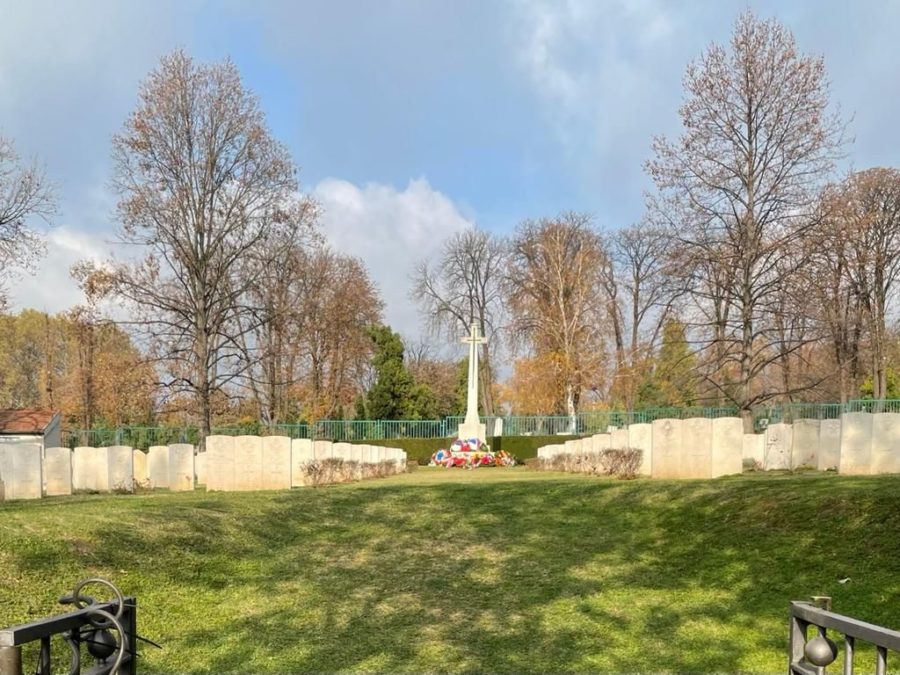17th November 2022 Belgrade, Serbia
Wisdom, Trust and Remembrance

Citizens look to their national leaders to govern responsibly and in the interests of their country. They hope that leaders will be blessed with wisdom and good judgement, and that they will exercise their authority responsibility. In return, leaders earn the trust of the people they govern.
In democratic societies people are free to make their own judgements on their leaders and their actions, and to hold them to account through elected bodies. They have free access to information to inform their views, and can exercise their rights of expression and peaceful assembly to convey them to those who govern them.
But whatever their system of government, people anywhere should be able to trust their political leaders to act in the fundamental interests of the country and its people.
Launching an illegal, unprovoked invasion; weaving a tissue of lies to pretend that your country is not at war and tens of thousands of your soldiers are not dying needlessly; isolating your country from the world; mobilising an unwilling population and triggering a mass exodus of skilled, workers is hardly acting in the interests of your country.
Vladimir Putin’s response to military setbacks, international condemnation and domestic discontent has been to drag his country further into the mire of conflict, and to wreak ever more violence upon the people of Ukraine while throwing away Russian lives. Instead of stopping the madness, he has tried to justify his gross violation of international law and international commitments by fantasies spun from falsehood and muddled history.
This conflict has nothing to do with defending a civilisation from ‘satanism’ or ‘denazification’. It is nothing more than a brutal, unprovoked assault upon an independent country. Putin was the aggressor when he annexed Crimea in 2014 and he is the aggressor now. Anyone doubting this should look at the relief and joy upon faces in newly liberated Ukrainian towns and villages.
This senseless death, destruction and devastation will leave a stain upon Russia’s reputation. The longer it goes on, the darker that stain becomes. The notion that soldiers who may have perpetrated war crimes in Putin’s name could have their sins ‘washed away’ is grotesque. There must be many in Kremlin circles who fear the day when they have to face the consequences of their support for this misadventure, not least from their own people.
Each year, on 11 November, we mark the end of the First World War with acts of remembrance for those who gave their lives in this and subsequent conflicts. Members of the British, Canadian and Polish armed forces, as well as doctors, nurses and other medical staff, lie at rest in cemeteries in Belgrade and across Serbia. They gave their lives, standing alongside allies to defend freedom in this corner of Europe. Again this year we laid wreaths and paid respect to them in a spirit of remembrance, reconciliation and the hope that past tragedies will not be repeated.
It is a tragic irony that as we prepared this year to remember the fallen, Moscow was sending under-equipped and poorly-prepared young conscripts westwards, not to liberate but to occupy, kill and be killed. The consequence for Russia is growing isolation and self-harm. Anyone who cares about the future not only for the people of Ukraine, but also of Russia, needs to send an unequivocal message now that the best way to limit the damage and suffering is for the Kremlin to change course now.
This joint article by Ambassadors Giles Norman (Canada), Rafal Perl (Poland) and Sian MacLeod (UK) first appeared in Serbian daily Politika on 17 November 2022.